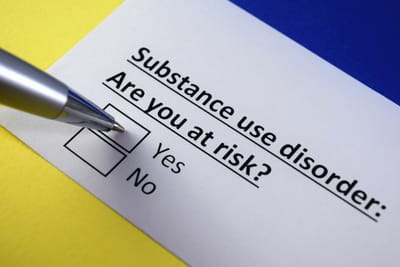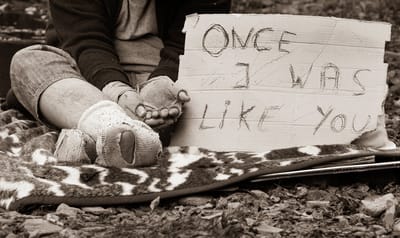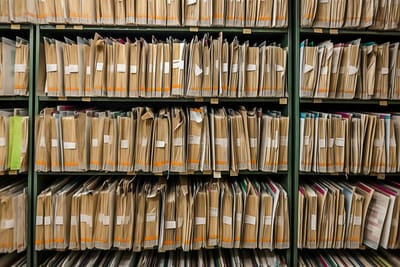DRUGS & ALCOHOL
- Dallas-Fort Worth Central Office of Alcoholics Anonymous
Website: https://www.aadallas.org/
This organization provides support and resources for individuals struggling with alcohol addiction.
- North Texas Area of Narcotics Anonymous:
Website: https://ntana.org/
Narcotics Anonymous offers support for those dealing with drug addiction.
- Dallas County Substance Abuse Mental Health Services Administration (SAMHSA):
Website: https://www.dallascounty.org/
The Dallas County government's website may have information about local drug addiction programs and resources.
- Texas Department of State Health Services - Substance Abuse Services:
Website: https://www.dshs.state.tx.us/
This website might have information on state-funded drug addiction programs and services.
- The Council on Recovery:
Website: https://www.councilonrecovery.org/
This organization provides various addiction-related services and resources for individuals and families.
- The Treehouse:
Website: https://www.treehouserehab.org/
A rehab center in the Dallas area offering addiction treatment programs.
- Recovery Resource Council:
Website: https://recoverycouncil.org/
Provides a range of substance abuse and mental health services.
- Homeward Bound Inc
Website: Homeward Bound, Inc. | Non-Profit Behavioral Health Agency (homewardboundinc.org)
The mission is to promote the development of positive behavior, health, and independence for individuals and families caught up in the cycles of substance abuse and addiction.
- Enterhealth
Website: Enterhealth: Addiction Treatment & Substance Abuse Rehab
Team of medical experts, addiction-trained physicians, psychiatrists, and therapists.
- Nexus Recovery
Website: Home | Nexus Recovery Center
We serve as a community of hope and recovery for all women and their families who strive to live healthy, resilient lives.
- The Right Step
Website: Texas Drug Rehab Centers | Addiction Treatment | The Right Step Centers
Substance abuse treatment
- Cenikor's
Website: Dallas Treatment Center | Cenikor
Intensive Residential Treatment (male only), and Adult Outpatient Services.
- Greenhouse Treatment
Website: Drug & Alcohol Rehab Center Near Dallas Texas | Greenhouse Treatment
Treatment & Recovery
Substance Abuse Help For Dallas Fort-Worth
| FACILITY | ADDRESS | PHONE # | WEBSITE |
| Dallas Salvation Army Adult Rehabilitation Center | 5554 Harry Hines Blvd Dallas , TX - 75235 | (214) 630-5611 | dallas.satruck.org |
| North Dallas Drug Rehabilitation Center | 2307 Springlake Road Dallas, TX - 75234 | (972) 446-0972 | - |
| Life's Second Chance Treatment Center | 2615 South Lancaster Road Dallas, TX - 75216 | (214) 376-7388 | lsctreatmentcenter.com |
| Solutions Outpatient Services | 4300 MacArthur Avenue Suite 270 Dallas, TX 75209 | (214) 369-1155 | http://sosdallas.com/ |
| Recovery Resource Council | 2700 Airport Freeway Fort Worth, Texas 76111 | Welcome to the Recovery Resource Council (recoverycouncil.org) | |
| Homeward Bound Inc. | PO BOX 222194 DALLAS TX, 75222-2194 | 214-941-3500 | Homeward Bound, Inc. | Non-Profit Behavioral Health Agency (homewardboundinc.org) |
| Arise Recovery Center Fort Worth Tx | 6115 Camp Bowie Blvd Suite #220 Fort Worth, TX 76116 | 817-381-0633 | Fort Worth Outpatient Alcohol & Drug Rehab | Arise Recovery Centers |
| MHMR OF TARRANT COUNTY | FORT WORTH | 800-866-2465 | My Health My Resources of Tarrant County – We change lives (mhmrtarrant.org) |
| Phoenix Associates Counseling | 3001 W. 5th Street Suite A Fort Worth Tx 76107 | Phoenix Associates Counseling (phoenixacs.org) | |
| Salvation Army Adult Rehabilitation Center | 2901 NE 28th St, Fort Worth, TX 76111 | 817-834-6271 | Ft Worth - ARC Command (arcsouth.org) |
| Denton Treatment Services | 621 Londonderry Lane Denton, TX 76205 | 940-483-0644 | Methadone and Suboxone Treatment |Denton TreatmentTexas Treatment |
| Brentwood Treatment Services | 4801 Brentwood Stair Rd. Fort Worth, TX 76103 | 817-492-9383 | Methadone and Suboxone Treatment |Brentwood TreatmentTexas Treatment |
| Hemphill Treatment Services | 700 A. Hemphill St. Fort Worth, TX 76104 | 817-334-0111 | Methadone and Suboxone Treatment |Hemphill TreatmentTexas Treatment |
| MedMark Treatment Centers | 5201 Mccart Ave Ste H, Fort Worth, TX 76115 | 817-761-7692 | Opioid Treatment in Fort Worth, Texas | MedMark |
| Volunteers Of America | 4700 S Riverside Dr, Fort Worth, TX 76119 | 817-534-3432 | Home Page - Volunteers of America (voa.org) |
| Dallas Drug Treatment Centers | 11300 N Central Expy, Dallas, TX 75243 | 214-453-5663 | Dallas Drug Treatment Centers |
| CDHS INC | 214 Billings St Ste 240, Arlington, TX 76010 | 817-652-1004 | Chemical Dependency Health Services – Offering Hope, Promoting Change, Reuniting Families and Rebuilding Lives! (cdhsinc.com) |
| Volunteers of America | 300 Midway Dr E, Euless, TX 76039 | 713-460-0781 | Home Page - Volunteers of America (voa.org) |
| Milwood Hospital | 1011 North Cooper St, Arlington, TX 76011 | 817-261-3121 | Behavioral Health Center | Arlington, TX – Millwood Hospital |
| Lena Pope Home Inc | 601 W Sanford St, Arlington, Tx 76011 | 817-255-2652 | Lena Pope Homepage | LENA POPE |
| RAPHA Christian Counseling | 6300 N Belt Line Rd, Irving, TX 75063 | 972-257-0449 | Home - Rapha Christian Counseling |
Statewide programs
STATISTICS

- Among people aged 12 or older in 2021, 61.2 million people (or 21.9 percent of the population) used illicit drugs in the past year. The most commonly used illicit drug was marijuana, which 52.5 million people used. Nearly 2 in 5 young adults 18 to 25 used illicit drugs in the past year; 1 in 3 young adults 18 to 25 used marijuana in the past year.
- 9.2 million people 12 and older misused opioids in the past year.
- 46.3 million people aged 12 or older (or 16.5 percent of the population) met the applicable DSM-5 criteria for having a substance use disorder in the past year, including 29.5 million people who were classified as having an alcohol use disorder and 24 million people who were classified as having a drug use disorder.
- The percentage of people who were classified as having a past year substance use disorder, including alcohol use and/or drug use disorder, was highest among young adults aged 18 to 25 compared to youth and adults 26 and older.
- In 2021, 94% of people aged 12 or older with a substance use disorder did not receive any treatment. Nearly all people with a substance use disorder who did not get treatment at a specialty facility did not think they needed treatment.
- 13.5 percent of young adults aged 18 to 25 had both a substance use disorder and any mental illness in the past year.
- Nearly 1 in 3 adults had either a substance use disorder or any mental illness in the past year, and 46 percent of young adults 18-25 had either a substance use disorder or any mental illness.
- The percentage of adults aged 18 or older who met criteria for both a mental illness and a substance use disorder in the past year was higher among Multiracial adults than among White, Black, Hispanic or Latino, or Asian adults. Asian adults were less likely to have had both AMI and a substance use disorder in the past year compared with adults in most other racial or ethnic groups.
- 7 in 10 (72.2 percent or 20.9 million) adults who ever had a substance use problem considered themselves to be recovering or in recovery.
- 2 in 3 (66.5 percent or 38.8 million) adults who ever had a mental health issue considered themselves to be recovering or in recovery.
Substance Abuse as a Cause of Homelessness

- Substance abuse can contribute to homelessness by straining personal relationships, leading to eviction, job loss, or financial instability.
- Individuals struggling with substance abuse may prioritize obtaining and using drugs or alcohol over meeting basic needs, such as paying rent or maintaining stable housing.
- Homeless individuals face numerous challenges and stressors that increase the likelihood of substance abuse, including trauma, mental health issues, limited access to healthcare, and social isolation.
- Substance abuse may be used as a coping mechanism to alleviate the distress associated with homelessness or to escape from the challenges of living on the streets.
- Many individuals experiencing homelessness and substance abuse also struggle with mental health disorders, such as depression, anxiety, or post-traumatic stress disorder (PTSD).
- Substance abuse may be used as a form of self-medication to manage symptoms of mental health conditions, leading to a cycle of addiction and homelessness.
- Homelessness can pose significant barriers to accessing substance abuse treatment and recovery support services. Lack of stable housing, limited financial resources, and social stigma can hinder individuals from seeking help.
- The complex needs of individuals experiencing homelessness and substance abuse often require integrated services that address both issues simultaneously, including housing assistance, mental health treatment, and substance abuse counseling.
- Homeless individuals with substance abuse issues face heightened health risks due to inadequate nutrition, exposure to harsh weather conditions, unsafe living environments, and increased vulnerability to violence and exploitation.
- Substance abuse can further compromise physical and mental well-being, exacerbating existing health conditions and increasing the risk of overdose and infectious diseases, such as HIV/AIDS or hepatitis.
- Some homeless individuals may resort to petty theft, panhandling, or engaging in other forms of low-level criminal activity to meet their basic needs or support their substance use.
- It is crucial to note that the majority of homeless individuals are not involved in criminal behavior, and stereotypes should not be applied to the entire homeless population.
- Homeless individuals are often vulnerable to victimization, including assault, robbery, and harassment. They may be targeted due to their lack of secure housing and limited access to protection or support systems.
- The experience of victimization can further exacerbate mental health challenges and increase the risk of ongoing trauma for individuals experiencing homelessness.
- Mental illness, including conditions such as schizophrenia, bipolar disorder, and major depression, is prevalent among the homeless population.
- The lack of access to adequate mental health services and supportive resources can contribute to the cycle of homelessness and exacerbate mental health symptoms.
- Some individuals experiencing homelessness with untreated mental illness may exhibit behaviors that come into contact with the criminal justice system due to the intersection of their mental health challenges and survival needs.
- Some jurisdictions have implemented laws and policies that criminalize certain activities associated with homelessness, such as sleeping in public spaces or panhandling.
- These policies can further marginalize and stigmatize homeless individuals, leading to a cycle of arrests, incarceration, and limited access to support services, including mental health treatment.
Addressing homelessness and substance abuse requires a comprehensive approach that combines housing solutions, access to healthcare and treatment services, mental health support, and social services. Collaboration among government agencies, non-profit organizations, healthcare providers, and community resources is essential to provide holistic care and support to individuals experiencing homelessness and substance abuse. Strategies may include outreach programs, harm reduction initiatives, affordable housing programs, substance abuse treatment facilities, and supportive services tailored to the unique needs of this population.


